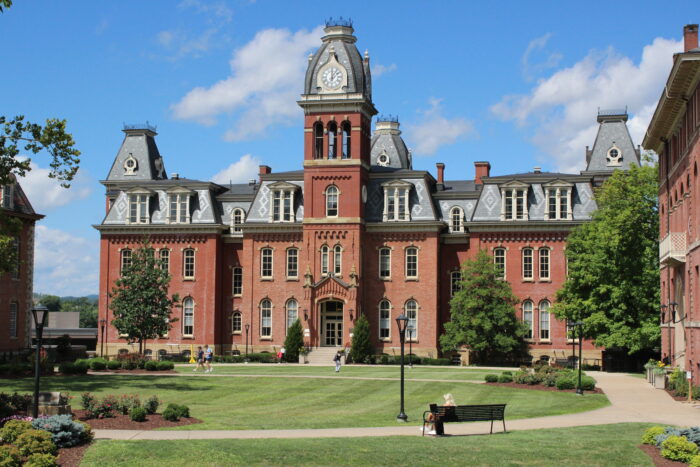The Resilient Energy Technology and Infrastructure Consortium (RETI) has been selected as a finalist for a prestigious $160 million National Science Foundation (NSF) Regional Innovation Engines award. RETI is a collaboration between WVU, Carnegie Mellon University, the University of Pittsburgh and over 60 regional partners focused on developing resilient energy to fuel industry.
“We’re looking at supporting investing and helping see technologies move from academic research institutions into the commercial marketplace to help with things like grid reliability and flexibility, and then also industrial energy efficiency,” Erienne Olesh said.
Olesh is the executive director of the WVU Office of Innovation and Commercialization and CEO of RETI. She said the group has made efforts to ensure their work will have broad effects beyond the academic institutions.
“We want to see the majority of the positive impact from this work actually reach out and touch our communities,” Olesh said. “This is really true, place-based economic development that we’re working on.”
According to a release from WVU, if chosen, the NSF funding would generate 21,000 jobs, 150 startups and more than $1 billion dollars in economic growth for the region.
“We have had our partners in industry, workforce, community, technical colleges, as well as both the Pennsylvania and West Virginia state government really deeply commit to this project,” Olesh said. “That’s reflected in the fact that it’s not a requirement of the funding that we hope to get from the National Science Foundation, but our partners have committed over $161 million in financial resources to put towards this work. So the $160 [million] we will hopefully get from NSF actually unlocks another $161 million.”
The consortium is one of 15 finalists selected from more than 300 applicants from around the country.
“That, in and of itself, I think, speaks volumes to the team and all of our partners that we have even been recognized as being one of the top 15 in the country to put forth an effort,” Olesh said. “We didn’t do this in a vacuum. This was not an academic project. This is not something that just a small group of people thought up and then ran with. We have been incredibly intentional about making sure that everything we are doing and how we have built this program and our vision is anchored in our region.”
Add WVPB as a preferred source on Google to see more from our team


























